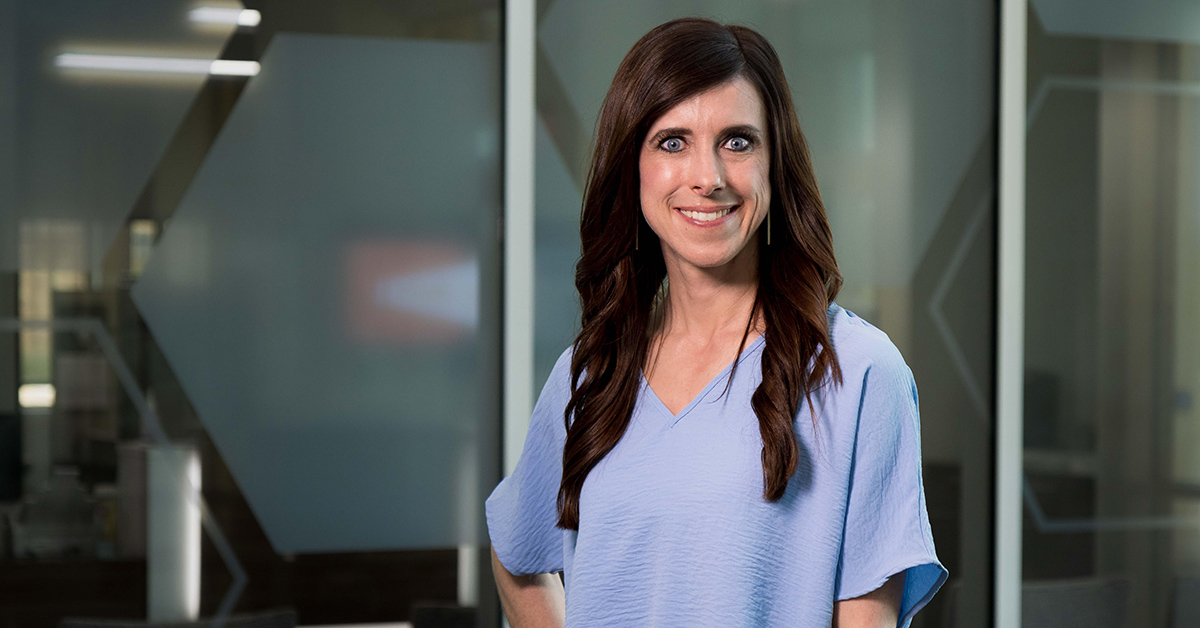Safely Lending an Ear
TTUHSC Expert Gives Advice on Ear Safety for Fourth of July Celebrations

To many, Independence Day is more than a day off from work to solemnly mark the country’s founding. It’s a day of celebration comparable to a mid-summer Christmas where cookouts and family picnics serve as sun-soaked substitutes for baking cookies and dinner at grandma’s house.
Like the multi-colored lights so synonymous with the winter holiday season, many would not consider the Fourth of July complete without fireworks. In addition to lighting up the night sky, the loud popping sounds generated by fireworks can contribute to noise induced hearing loss, the second most common type of inner ear hearing loss after age-related hearing loss. Noise induced hearing loss usually develops gradually and slowly over time and can begin at any age. It is generally caused by moderate to prolonged exposure to noise levels above 85 decibels, though some people can be affected with only momentary exposure to such sounds.
Leigh Ann Reel, Au.D., Ph.D., CCC-A, director of the TTUHSC Center for Speech, Language, and Hearing Research, said that’s an important threshold to remember because the noise from fireworks can reach 140 to 160 decibels.
“That’s louder than a jet engine,” said Reel. “It’s a level that can cause immediate permanent damage to your inner ear.”
To reduce the chances of noise induced hearing loss from fireworks, Reel referenced the The American Speech-Language-Hearing Association (ASHA) recommended distance to protect hearing.
“In order to safely view fireworks in terms of your hearing, you should be at least 500 feet away from the fireworks,” said Reel. “ If you're closer than that, you definitely should be wearing hearing protection.”
ASHA also advises that infants are not exposed to noise from fireworks. According to Reel, sound is amplified when presented in a smaller space, which means a loud sound like that produced by fireworks may be more dangerous to an infant’s little ear canals and put them at higher risk than adolescents or adults who have larger ear canals.
There are different hearing protection options available for both children and adults.
“The least expensive would be foam earplugs,” Reel said. “They are disposable—so they're just meant to be used one time—and they're very inexpensive.”
Reel added that foam earplugs can be very effective when used properly, but they are
generally made to fit adolescents and adults.
For an option that comes in different sizes for children and adults, Reel recommends
protective earmuffs. These are more expensive than disposable foam earplugs and offer
good hearing protection that is difficult to use incorrectly. Additionally, appropriately-sized
protective earmuffs are available if exposing an infant to loud noises like fireworks
is unavoidable.
Custom earplugs are also available for people who are exposed to loud noise more frequently than the annual July 4 fireworks show.
“An audiologist can make an impression of your ear canal and have an earplug made that fits your ear,” explained Reel. “It's usually more comfortable for most people. They're easier to get in and you know it's providing a nice consistent level of hearing protection.”
Reel’s final recommendation is that those who plan to ignite fireworks double-up on
protective gear for maximum efficiency.
“Even if your family and friends are going to be watching from close by, it’s recommended
that you wear earplugs with earmuffs over them in order to offer extra protection,”
Reel said. “Partly because people struggle to get earplugs in correctly, and partly
because just one alone is not enough if you're going to be very close to loud noises.”
For additional advice on ear safety, eye safety, and protection from COVID-19 this Independence Day, review TTUHSC’s expert-recommended tip sheet.
Related Stories
Celebrating Veterans: TTUHSC’s General Martin Clay’s Legacy of Service and Leadership
From his initial enlistment in the Army National Guard 36 years ago to his leadership in military and civilian health care management roles, Major General Martin Clay’s career has been shaped by adaptability, mission focus and service to others.
Texas Tech University Health Sciences Center School of Nursing Named Best Accelerated Bachelor of Science in Nursing Program in Texas
The TTUHSC School of Nursing Accelerated Bachelor of Science in Nursing (BSN) program has been ranked the No. 1 accelerated nursing program in Texas by RegisteredNursing.org.
TTUHSC Names New Regional Dean for the School of Nursing
Louise Rice, DNP, RN, has been named regional dean of the TTUHSC School of Nursing on the Amarillo campus.
Recent Stories
The John Wayne Cancer Foundation Surgical Oncology Fellowship Program at Texas Tech University Health Sciences Center Announced
TTUHSC is collaborating with the John Wayne Cancer Foundation and has established the Big Cure Endowment, which supports the university’s efforts to reduce cancer incidence and increase survivability of people in rural and underserved areas.
TTUHSC Receives $1 Million Gift from Amarillo National Bank to Expand and Enhance Pediatric Care in the Panhandle
TTUHSC School of Medicine leaders accepted a $1 million philanthropic gift from Amarillo National Bank on Tuesday (Feb. 10), marking a transformational investment in pediatric care for the Texas Panhandle.
Texas Tech University Health Sciences Center Permian Basin Announces Pediatric Residency Program Gift
TTUHSC Permian Basin, along with the Permian Strategic Partnership and the Scharbauer Foundation, Feb. 5 announced a gift that will fund a new pediatric residency.
